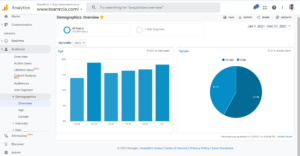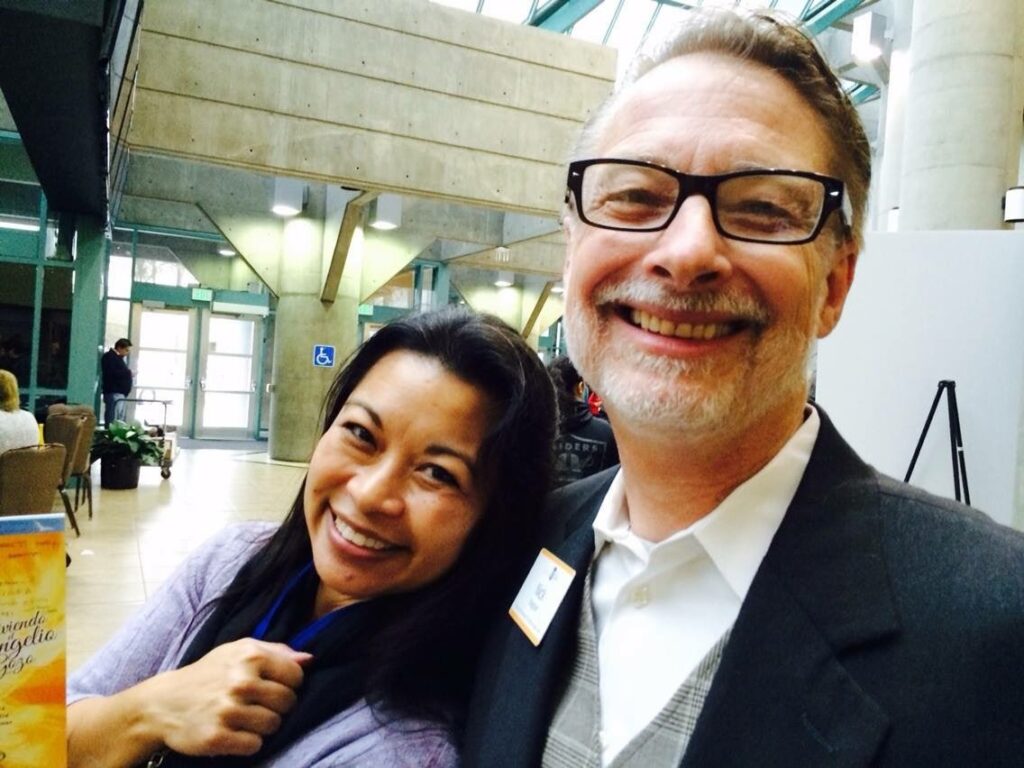
At our 2021 year-end review meeting for TeamRCIA, we discovered a surprising fact about millennials.
When we started TeamRCIA in 2007, millennials were barely a thing. That year, the oldest of them was in their mid-20s. Today, the youngest of them is in their mid-20s and the elders are just reaching their 40s.
What have we been seeing at TeamRCIA?
Honestly, for most of our history at TeamRCIA, we haven’t noticed much interest from people that young. On day-one, we had no demographic history to analyze, but our own experience and intuition told us that most catechumenate ministers were in their 50s and older.
And that turned out to be true for a long time. We take a careful look at our website traffic at least four times a year. Every quarter, for almost 15 years, the people who clicked on our website usually had gray hair.
But lately, we’ve seen a shift. It started with our live trainings a few years ago. We began to notice a few people in their 30s and even 20s showing up. And at our recent review meeting, we saw the graphic above (click here to see a larger version).
The graphic represents everyone who has interacted with TeamRCIA.com in any way throughout 2021. Notice the bar that is second from the left. It is the highest of any age group. It is the young millennials (25-34).
The bar third from the left is the older millennials (35-44). If you combine the two, the millennials are blowing away Gen-X and the Baby Boomers when it comes to signing on to TeamRCIA.com.
What can we do with this information?
We’re stunned. We don’t know exactly what it means, but it means something. Study after study has shown that the millennial generation is stampeding to the exits of our churches. This trend from our website analytics shows the opposite of that. At least for the TeamRCIA community, the millennials are leading the way for not only remaining in the church but bringing others in as well.
The TeamRCIA community is not representative of all of Christianity, of course. We don’t even represent all of catechumenate ministry. We know that parish initiation teams that are looking for easy, programmatic solutions are not interacting with us much. The teams that value what we do at TeamRCIA tend to operate according the six principles of initiation ministry given to us in the rite.
Are millennials more attracted to an initiation process that is not programed to be a one-size-fits-all experience that starts and ends on the same dates every year?
Which makes us wonder. Are millennials more attracted to an initiation process that is not programed to be a one-size-fits-all experience that starts and ends on the same dates every year? Are they drawn to participate in a process that is flexible enough to engage each seeker on their own unique spiritual path? Are they more interested in encounters with Jesus than lectures on the catechism?
These are our biases, and we want to believe these are the kinds of reasons we are seeing a spike in millennial participation at TeamRCIA.
However, we are not sociologists, and there may be more mundane explanations for what our website report is showing us. But until we get a more scientific explanation, we’re just going to go with the belief that the Holy Spirit is at work shaping the next generation of catechumenate leaders.
Your turn
How you are you inviting and incorporating millennial participation on your catechumenate team? How are demographics playing out in your parish? Share your thoughts in the comments below.















Interesting statistics. I do not have any millenials on my catechumenate team. BUT most of the catechumens and candidates ARE millenials! That would be another interesting statistic. One more point of interest……some asking for RCIA sessions are kids 13, 14, 15! None of these are ‘many’ but those are the ones asking. Parents with older children are also requesting the RCIA sessions and they would also be millenials.
Interesting! Thanks for sharing this info, Sr. Emily.
I would have to agree with Sr. Emily. I am noticing the same thing with our Catechumen and Candidates. They seem to getting younger. (I thought I was just getting older!)
Ha! Me too!
I think part of the explanation may be that like Baby Boomers it’s a very large age cohort. It dwarfs Gen X so it can look like a large spike as they start entering ministries and using resources like Team RCIA. While their numbers may appear large they may not represent an unusually large percentage of Millennials.
Great insight, Ophelia! Thanks.
As an older millennial, and parish coordinator of the catechumenate ministry, I wonder if there might be a couple of things at play.
I think there is a real hunger to understand they “why” of what we do. Why does the Mass look and sound the way it does? Why those prayers? Where did our practices come from? I don’t know if it’s the same everywhere, but religious education for me and my peers in Catholic schools was more focused on teaching us about other faith traditions and less about understanding our own faith. We learnt how to do our faith (how to say the prayers, sing the songs, what actions to do when) but not the heart and history behind it all. As we journey with seekers, we get to find (and renew) understanding of the richness of Sacrament, Liturgy and tradition we are part of. The number of times I’ve seen faces light up as connections of understanding are made – both in people seeking to become part of our faith community and in people who are already part of it. These connections of understanding have, time and again, drawn our catechumenate ministers more deeply into the practice of our faith and (I think) this in turn keeps bringing them back to catechumenate ministry.
I do think you are right about a sense of attraction to flexibility. I also wonder if it’s not also an attraction to a sense of empowerment as lay people. In order to be flexible, our priests entrusts much of this ministry to me and I have to trust much of the day to day engagement with seekers to my team. I can’t possibly meet everyone individually all the time or answer every question, before and after their initiation journey. But empowering others as sponsors (or even less officially as simply “co-travellers”) creates networks of relationships for the seekers but it builds a sense of empowerment and connection into our ministers that I think is really attractive for millennials too.
Finally, I suspect there’s something in the sense of community and real connection that builds in Catechumenate ministry, both within the team and with the seekers, that is incredibly attractive to millennials. We talk about millennials being digital natives, and living much of their lives online, but I think COVID has shown us all the intrinsic need for tangible connections and relationships as well and I’ve seen and heard this desire constantly reiterated by millennials and younger generations as we have come in and out of lockdowns.
Just some thoughts.
Wow, Pauline, there is so much here to think about. I’m going to have to re-read this a couple of times. Thanks for the deep thinking.
Not to be the pessimist here, but I think, at least in part, this can be attributed more to the millennials being allowed to participate finally. For so long, we have been dismissed by the “older” people in parishes that were leading the ministries (not just RCIA). We were not part of their “click”, or we were too young to know anything, or we were the wrong kind of people (liturgical proclivities, or personal style, or school/work schedule). Now the “older” people are starting to “retire” from ministry (or literally die off) and parishes are in need of people to help out, and we millennials are finally being given the chance.
For what its worth, my wife, a convert herself, had to get a Doctorate of Theology, and become the diocesan coordinator for RCIA before anyone would let her participate in RCIA. I had to get two masters degrees in theology, before anyone would let me participate.
Hi Anthony. Thanks for sharing your thoughts. i’m sorry that happened to you and your wife. Cliques can be a big problem in parishes. Thanks for hanging in.
Since we are a student parish (serving the University of Michigan in Ann Arbor), we are blessed to have younger people on our team, as well as among the seekers. Last year we had the largest number of undergrad candidates that I’ve seen in nine years. While I would agree that there is still room for growing these numbers, I think younger people are responding to a hunger for learning more and deepening their relationship with God. They are searching for an authentic sense of what God means in their lives.
That’s great to hear, Rita. Thanks for letting us know what’s going on in Ann Arbor! Blessings on all the great work you are doing.